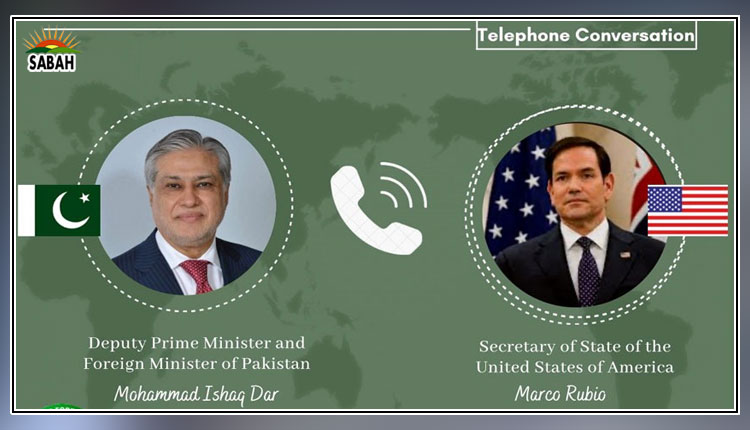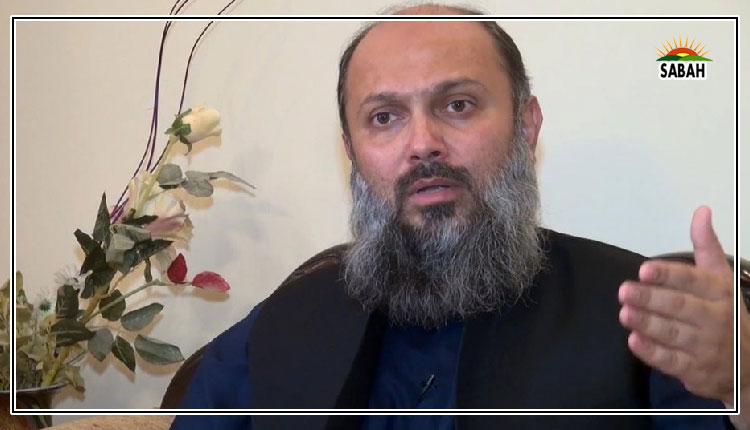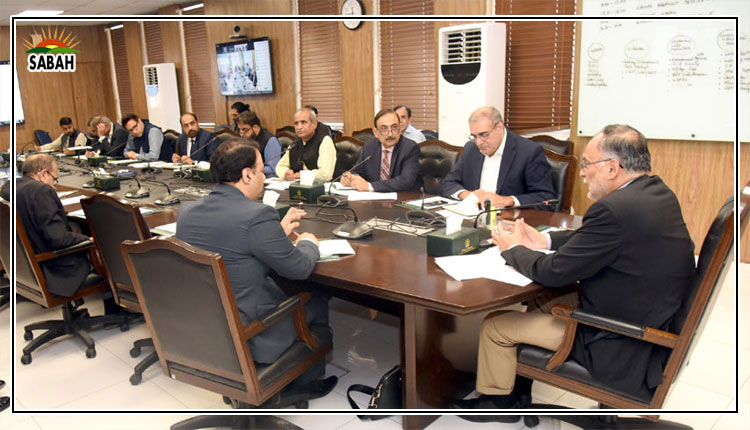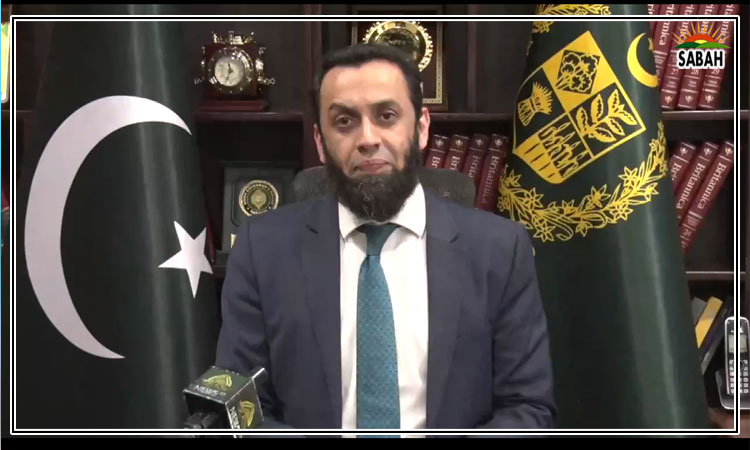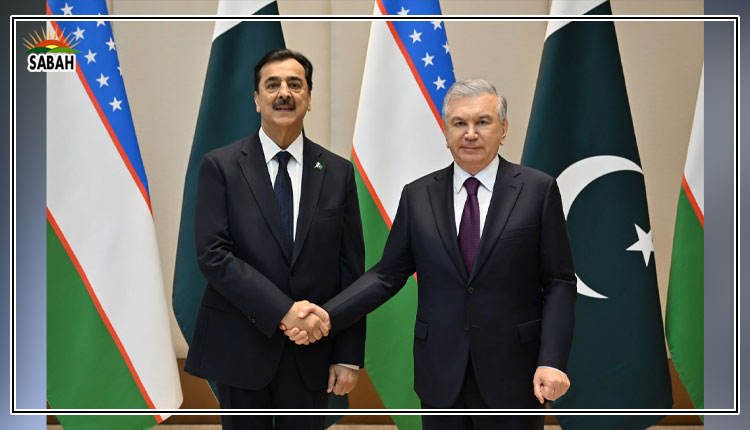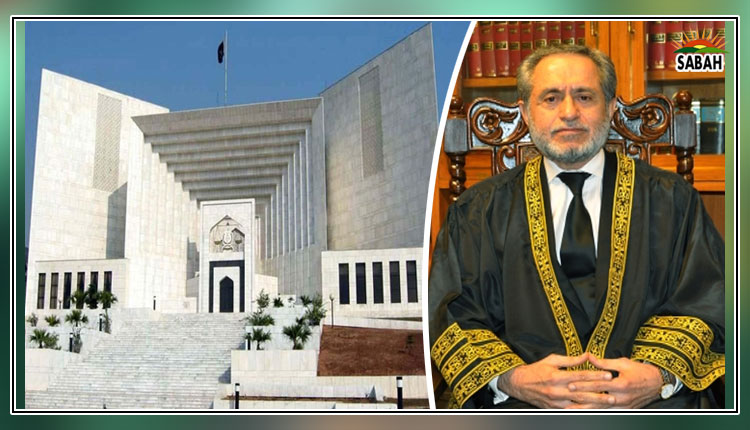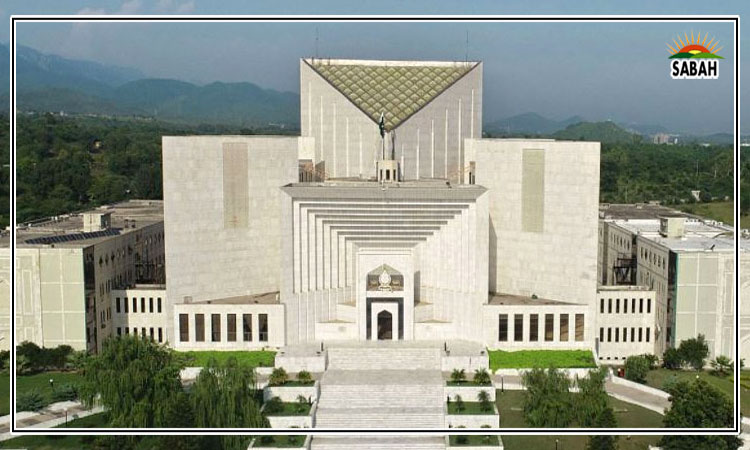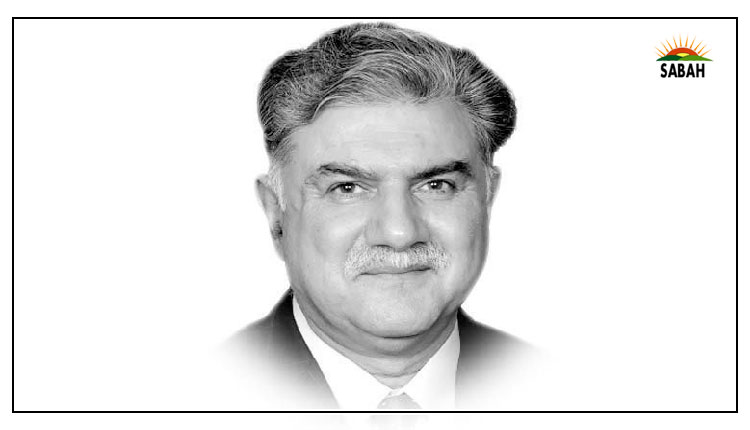Afghanistan — masking the sun behind a finger… Inam Ul Haque
“We must honor the Afghan nation’s commitment to safeguarding these guests, friends,” an angry Moulvi Khairullah Khairkhwa announced after Pakistan struck TTP targets recently in Birmal, Paktia. Khairkhwa has laid bare the reality of his ‘TTP guests’ that the Islamic Emirate continues to shelter under Pashtunwali-cum-religious fidelity. Khairkhwa, the Interim Minister of Information and Culture, and former Interior Minister during Taliban 1.0, and a Guantanamo detainee, was making the ‘known known’ publicly.
And that to this point, was IEA’s inability to hide the sun behind a single finger – as a Pashto proverb goes – any longer. So far, the IEA functionaries were in full denial about the TTP presence in and attacks from Afghan soil against Pakistan, terming TTP-allied terrorism Pakistan’s internal problem.
The public acceptance of TTP-IEA nexus raises important questions. First, it violates the Doha Agreement of February 2020 between the US and the IEA. The Preamble of the Agreement clearly states, “The Islamic Republic of Afghanistan furthermore reaffirms its ongoing commitment to prevent any international terrorist groups or individuals, including al-Qa’ida and ISIS-K, from using Afghan soil to threaten the security of the United States, its allies and other countries.” Continued hosting of forces inimical to Pakistan, in TTP enclave in Eastern Afghanistan in the Loya Paktia area, under direct suzerainty of Haqqanis et al, violates Doha Accord, squarely, blatantly and consistently.
Article 51 of Chapter VII in the UN Charter, authorises states to respond to military provocations from across borders, stipulating, “Nothing in the present Charter shall impair the inherent right of individual or collective self-defence if an armed attack occurs against a Member of the United Nations, until the Security Council has taken measures necessary to maintain international peace and security.” This inherent right has been used by the US and Israel frequently in the Middle East.
Second, IEA’s recalcitrance to rein in TTP, validates that, a) the Emirate has ‘no will or capacity’ to do so, for this being gravely divisive issue. And that the TTP is concentrated in Greater Paktia under Haqqani suzerainty, away from peaceful Qandahar; b) the internal jockeying for power within IEA – which is not a monolith – somehow compels Khostwal Haqqanis to ignore TTP overreach, being their default militia. Qandahar goes along for the sake of IEA unity, and innately to embarrass Haqqanis before their Pakistan benefactors.
This strategy ‘paradoxically’ suits Qandahar politically, as Haqqanis are considered closer to Pakistan; c) the IEA exerts lax or no control of borders with poor command and control, wherein armed groups continue to launch cross border attacks, at times under full connivance of the IEA border forces.
The recent infiltration attempts by TTP-Afghan Combine on 27-28 December 2024 in Kurram and Dand Aw Patan along Northeastern Paktia, in retaliation for Pakistan’s Birmal strikes on 24 December, being a case in point; d) the TTP economics are becoming burdensome for IEA, hence their willingness to let TTP rank and file fend for themselves through criminal activities; and e) the spike in TTP attacks emanate from the intense desire of its rank and file to come home from enforced hospitality on Afghan soil, where they seemingly have lower than optimal self and social-esteem, as they live in an inferior hamsaya status.
Open sources validate Pakistan targeting TTP encampment/meetings in Laman, Margha, and Murg Bazaar villages, the latter being destroyed. Strikes neutralized High Value Targets (HVTs) including senior TTP Commander, Sher Zaman alias Mukhlis Yar, Commander Abu Hamza, and Akhtar Muhammad alias Khalil. All of them were recruiting and training young child suicide bombers and terrorists. Strikes also hit the “Umar Media Centre” headed by Commander Shoaib Iqbal alias Muneeb Jatt. UMC is the hub of TTP’s digital propaganda. These strikes mark the third instance Pakistan using ‘its inherent right of self-defence’ since IEA takeover of Kabul in 2021. The last being on 18 March 2024 that targeted Hafiz Gul Bahadur Group, the strongest North Waziristan-based TTP constituent. The March and December strikes were in direct retaliation for TTP attacks on Pakistani soldiers.
Third, during his recent press briefing, the DG ISPR apprised about 59,775 IBOs in 2024 alone, wherein in 383 military lives were lost. He emphasised Pakistan following a clear and comprehensive policy on Afghanistan. PM Shehbaz Sharif lent weight to the military, pronouncing continued cross-border TTP attacks a ‘Red Line’ that would trigger strong and powerful response from Pakistan. And that the prevalent Pak-Afghan status quo is no more acceptable, and Kabul must choose between Pakistan and the TTP’s Fitna al-khawarij (the evil of the outliers).
Fourth, IEA officials while commenting on Pak-Afghan military standoff often tend to boast about their past successes against the British, the Soviet Union and more recently against the US-NATO Combine. They conveniently forget the support – diplomatic, military, material and socio-psychological – that Pakistan rendered to the Taliban against the Soviet Union; the continuing support to Afghan refugees; and the role Islamabad played in ending foreign occupation of their country, most recently. Under Pashtunwali, it is overlooking shegara (doing good) and under Islamic injunctions, it is being unfair to a friend and benefactor. Consequently, most Pakistanis, unfortunately, consider their Afghan brethren ungrateful.
Fifth, it is important for IEA not to take wrong military lessons from their war of independence, where they had no chance of success without Pakistan’s steadfast help, provision of safe havens in its erstwhile FATA, and the price Pakistan consequently paid for Afghanistan’s liberation. Pakistan is not USSR, nor the US/NATO-Combine that had ‘occupied’ Afghanistan and had very shallow socio-anthropological understanding of Afghans. Pakistan doesn’t need and want to occupy Afghanistan; it knows Afghanistan and has punishing leverages at its disposal. Therefore, continued hostility with Islamabad will only aggravate Afghan situation diplomatically and economically. IEA leaders also should not wrongly interpret Pakistan’s domestic political noise as Islamabad’s systemic fragility. As noise – including political sloganeering by xyz – is just noise.
Lastly, continuing to hit TTP in their enclaves will only build the right kind of pressure on TTP and their hosts Haqqanis. At some level, Kabul too wants to get rid of this legacy issue, that is spoiling their relations with their only true and indispensable interlocutor, Pakistan. Saner elements within the IEA realize this.
COURTESY TRIBUNE


